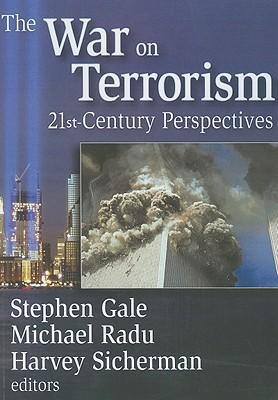CNN's Peter Bergen: The New War on Terrorism
Guide or Summary:War on Terrorism is a phrase that has been used to describe the United States' efforts to combat terrorism since the September 11, 2001, at……
Guide or Summary:

- War on Terrorism is a phrase that has been used to describe the United States' efforts to combat terrorism since the September 11, 2001, attacks. In the years that followed, the term has become synonymous with a broad range of military and intelligence operations aimed at preventing terrorist attacks and dismantling terrorist organizations. However, as the world has changed, so too has the nature of the threat. Today, the war on terrorism is more complex and multifaceted than ever before. In this article, we will explore the evolving nature of the war on terrorism through the lens of CNN's Peter Bergen.
- Peter Bergen is a name that is synonymous with expertise on terrorism. As a senior fellow at the New America Foundation and a CNN contributor, Bergen has been at the forefront of reporting on and analyzing the threat of terrorism for over two decades. His insights and analysis have been instrumental in shaping the public's understanding of the evolving nature of the war on terrorism.
- Evolution of the War on Terrorism Over the past two decades, the nature of the war on terrorism has evolved significantly. In the immediate aftermath of the September 11 attacks, the United States launched a global war on terrorism that involved military interventions in Afghanistan and Iraq. However, as the years have passed, the focus has shifted from large-scale military operations to more targeted and intelligence-driven efforts aimed at preventing terrorist attacks.
- Conclusion As the world continues to change, so too will the nature of the war on terrorism. However, one thing is clear: the threat of terrorism remains a significant and ongoing challenge that will require ongoing attention and effort. Through the insights and analysis of experts like Peter Bergen, we can continue to better understand the evolving nature of the threat and develop effective strategies to combat it.
War on Terrorism is a phrase that has been used to describe the United States' efforts to combat terrorism since the September 11, 2001, attacks. In the years that followed, the term has become synonymous with a broad range of military and intelligence operations aimed at preventing terrorist attacks and dismantling terrorist organizations. However, as the world has changed, so too has the nature of the threat. Today, the war on terrorism is more complex and multifaceted than ever before. In this article, we will explore the evolving nature of the war on terrorism through the lens of CNN's Peter Bergen.
Peter Bergen is a name that is synonymous with expertise on terrorism. As a senior fellow at the New America Foundation and a CNN contributor, Bergen has been at the forefront of reporting on and analyzing the threat of terrorism for over two decades. His insights and analysis have been instrumental in shaping the public's understanding of the evolving nature of the war on terrorism.
Evolution of the War on Terrorism Over the past two decades, the nature of the war on terrorism has evolved significantly. In the immediate aftermath of the September 11 attacks, the United States launched a global war on terrorism that involved military interventions in Afghanistan and Iraq. However, as the years have passed, the focus has shifted from large-scale military operations to more targeted and intelligence-driven efforts aimed at preventing terrorist attacks.
One of the key factors driving this shift has been the rise of homegrown terrorism. In recent years, the United States has seen an increase in terrorist attacks carried out by individuals who are radicalized within their own communities. This has led to a greater emphasis on intelligence gathering and analysis, as well as efforts to counter radicalization and extremism.

Another important factor shaping the evolution of the war on terrorism is the changing nature of the threat. While traditional terrorist organizations like al-Qaeda and ISIS remain a significant threat, there is also a growing concern about the potential for cyber-terrorism and other forms of asymmetric warfare. As a result, the United States and its allies are increasingly focusing on developing new technologies and capabilities to counter these threats.
